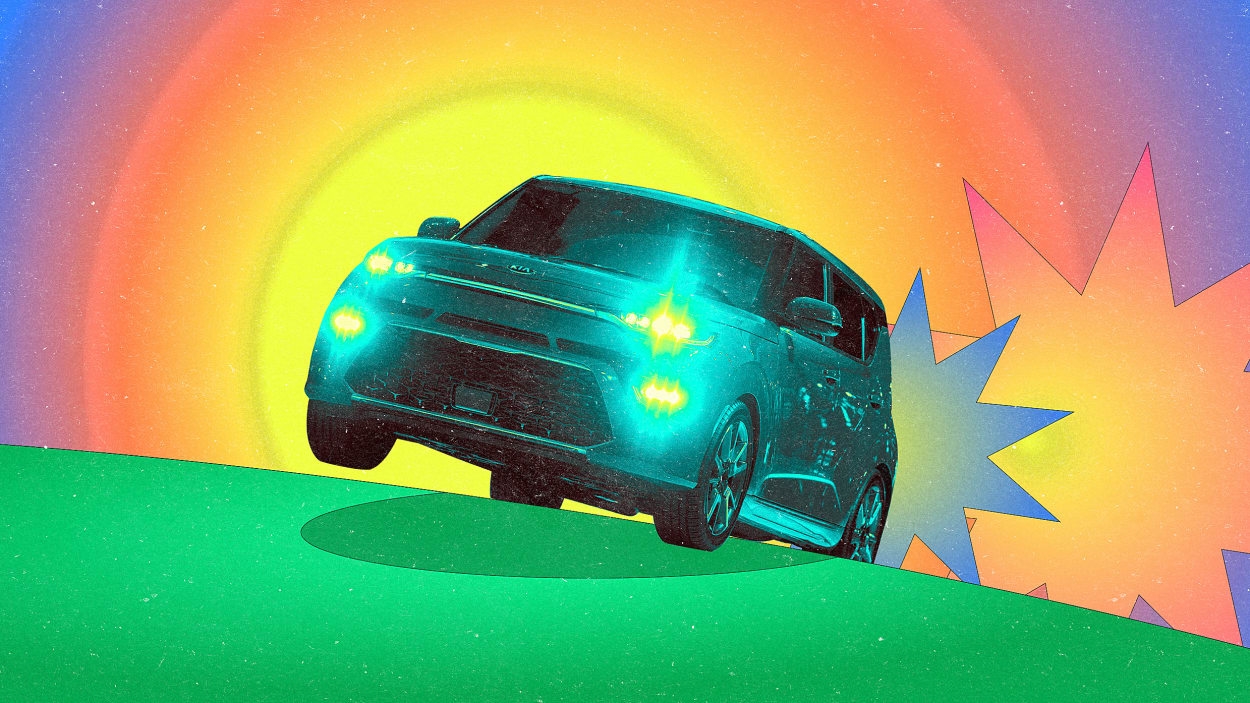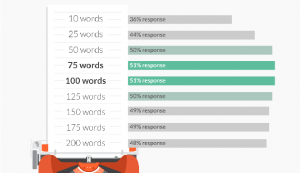Branded is a weekly column devoted to the intersection of marketing, business, design, and culture.
Lots of brands desperately want to go viral on TikTok. But not the way Kia did.
The “Kia Challenge”—involving videos sharing a purportedly straightforward hack that made it fairly easy to steal certain Kia and Hyundai models—initially flared up last summer. It briefly became a sensational-news staple, with media reports focused on alleged instances of thrill-seeking teens ending up in fiery wrecks. The how-to videos were promptly purged from TikTok. But unlike some scary-sounding viral “trends” that turn out to be mostly media hype (Nyquil Chicken, etc.), the spread of this car-theft how-to has had legs.
In fact, it has lately showed up rather glaringly among car-theft data in multiple cities. In St. Louis County, the two brands represented a slim percentage of auto thefts at the start of 2022; but in the last six months of the year, they accounted for a whopping 64%. In New Orleans, Kias and Hyundais accounted for more than a quarter of all car thefts—more than six times the number in 2021—with the majority occurring after the viral videos took off. In Washington, D.C., the two brands make up about a third of stolen cars. Similar spikes have been reported in Chicago, Philadelphia, and elsewhere.
Without getting into some finer points about how to steal a car, the process involves using a USB cable to bypass the ignition. Evidently, Kia models from 2011-2021 and Hyundai models from 2015-2021 lack an anti-theft “immobilizer” feature common to many contemporary ignition-technology systems.
This sounds like a fairly noteworthy design flaw, but at first most of the attention was focused on social media’s role in spreading nefarious information. Both Kia and Hyundai acknowledged the issue—but largely in the form of boilerplate statements. “As of the current 2022 Model Year, all Kia vehicles have an engine immobilizer fitted as standard,” one from Kia said last year. “All Kia vehicles for sale in the U.S. meet or exceed Federal Motor Vehicle Safety Standards.” Hyundai had a similar statement at the time. (Hyundai owns a significant stake in Kia, but the companies operate separately.)
Yet, as the problem has persisted, the focus has shifted away from TikTok and toward the carmakers. Car owners in at least seven states have filed class-action lawsuits against the two auto companies. According to recent reports, State Farm will restrict coverage of multiple Kia and Hyundai models in several states. And as the car theft issue has lingered, its association with Kia has spilled over to affect owners of newer models: Turns out potential thieves don’t always have the full background on which years and makes of Kias are vulnerable, so they just target any and all Kias. We know this because anecdotal stories abound of failed attempts to swipe properly protected Kia models—nevertheless leaving behind smashed windows, tangles of wire, ruined steering columns, and generally trashed interiors.
“I don’t want to ride in a car with somebody who has a Kia, I’m not comfortable parking my car or being in a car with somebody who is going to park next to a Kia,” one disgruntled ex-Kia owner told a St. Louis news station. “I kind of just stay away from it because they’re like a target.” In New Orleans, where discussions of Kia theft are unavoidable on Nextdoor and other neighborhood chat groups, a Kia owner whose vehicle was stolen twice in a week complained: “Kia should step up and install immobilizers in these older vehicles for free, either do that or do a recall.”
In recent weeks, the carmakers seem to be moving in that direction, perhaps at last realizing that their brands could be suffering long-term damage. In New Orleans, it was big news this week that the carmakers sent a reported 300 steering-wheel-lock devices (think The Club) for the city’s police department to distribute to people who can prove they own an affected model—first-come, first-served. Both companies are reportedly doing the same for other cities.

Moreover, their latest statements are now promising less of a stopgap solution. In a statement provided to Fast Company, Kia says it “remains concerned” about “criminal actors” targeting its vehicles, and that in addition to distributing wheel locks, it’s working on “the development and testing of enhanced security software, for affected models, at no cost.” The company says it has already started notifying owners and “anticipates that it will make software upgrades available for most affected vehicles over the next few months.” Hyundai provided a similar statement: “An upcoming software upgrade” is in the works, to “prevent the mode of theft popularized on social media,” it says. “This software upgrade will be available in the very near future and will be provided at no cost to customers. We will soon be providing more details regarding the timing and vehicles eligible.”
To be clear, the real bad actors here are, of course, the car thieves; surely Kia and Hyundai have also felt victimized by the original social-media spread. But their responses now feel belated and piecemeal, as though they were hoping the whole mess would just fade as quickly as, well, a viral trend. Maybe—with this more concrete and genuinely sympathetic response from both carmakers to what has to strike many Kia and Hyundai owners as a drastic security fail—they’ll be able to gain back some consumer trust.
Although, at this point, it might be a little late, or, at best, a lot tougher than it could have been just six months ago. As that ex-Kia owner in St. Louis said, the cars are now like thief targets: “I just don’t trust the brand,” she said.
(5)








